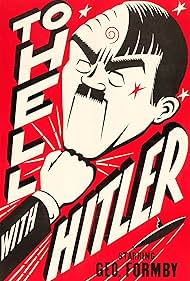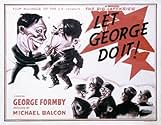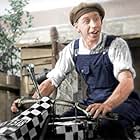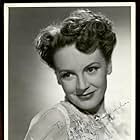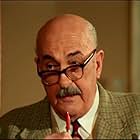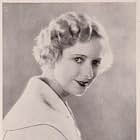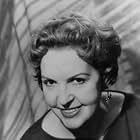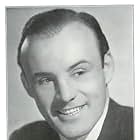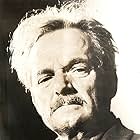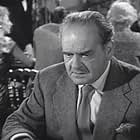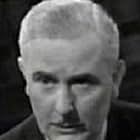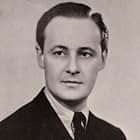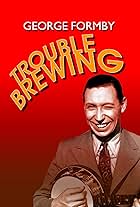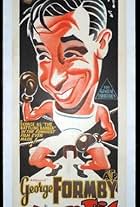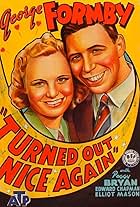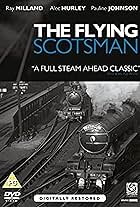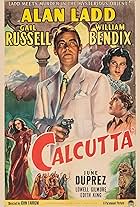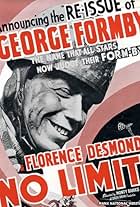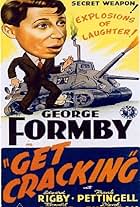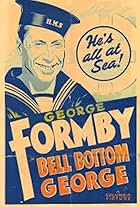IMDb RATING
6.4/10
379
YOUR RATING
Shortly after the start of World War II, a ukulele player (George) takes the wrong boat and finds himself in (still uninvaded) Norway. He is mistaken for a fellow British intelligence agent ... Read allShortly after the start of World War II, a ukulele player (George) takes the wrong boat and finds himself in (still uninvaded) Norway. He is mistaken for a fellow British intelligence agent by a woman (Mary), and becomes involved in trying to defeat German agents.Shortly after the start of World War II, a ukulele player (George) takes the wrong boat and finds himself in (still uninvaded) Norway. He is mistaken for a fellow British intelligence agent by a woman (Mary), and becomes involved in trying to defeat German agents.
Photos
Johnnie Schofield
- Solicitous Steward
- (as Johnny Schofield)
Daniel Brown
- Baker
- (uncredited)
Alec Clunes
- Officer
- (uncredited)
Walter Fitzgerald
- Dockside Policeman
- (uncredited)
Ian Fleming
- Colonel Harcourt
- (uncredited)
Jack Hobbs
- Conway
- (uncredited)
Storyline
Did you know
- TriviaGeorge Formby and Phyllis Calvert got along quite well during filming. Usually, there was hostility between Formby and his leading ladies.
- GoofsWhen George leaves the custom building in Bergen, it says Toldbod on the sign. That is the Danish way of writing. In Norwegian it would say Tollbod for Customs.
- Crazy creditsOpening credits prologue: The greater part of this story takes place in Norway ........ ......... before the war spread
- ConnectionsFeatured in War Stories (2006)
- SoundtracksMr. Wu Is a Window Cleaner Now
(uncredited)
Written by George Formby, Harry Gifford & Fred E. Cliffe
Performed by George Formby
Featured review
In 1940 Britain literally had a knife at it's throat from Nazi controlled Europe who were almost certain to invade at any time. With the country fully mobilized against this onslaught, it was important for the morale of the British Public that they knew all and everyone were playing their part and doing their bit.
And therefore the wartime propaganda machine was set in motion. An array of posters and photos, (My favorite of these has to be Winston Churchill armed with a tommy gun,) billboards and radio shows were producing just as much ammunition for this war as the factories that turned out the aircraft and tanks. Even the motion picture industry was enlisted into the propaganda army in an effort to get the message across and it worked at treat.
The most morale boosting picture of the entire war did not come from Hollywood or feature any significant tough guy of the day. It wasn't a film depicting battles and shell-shocked men risking life and limb for their country. It was a musical comedy starring the Lancashire comedian George Formby who joked and gaffed and basically bumbled his way through to victory over a flock of evil Nazi spies with enough time and coolness of character to give us a few cheery songs along the way on his ukulele. Magic.
At the time Formby was the highest paid and most beloved star in Britain and the message was clear..If George can do it, you can too. And they did.
It was one particular scene in the film which made it the success it was. A dream sequence with George flying to Berlin and giving Hitler a few good wollops on the jaw. A post-war poll showed that this scene alone did more to raise British spirits than any other scene in any other film made during the war on either side of the Atlantic.
Also references were made to Lord Haw-Haw, the German version of Tokyo Rose with George disgruntled at yet another pathetic broadcast shouting, "I'll tell you a few things an' all if I 'ad time." A desire that echoed the sentiment of all Britons in 1940 I'm sure.
George's songs as always are the lynch-pin of any Formby movie and here we have two of his best, 'Granddad's Flanalette Nightshirt' and 'Count Your Blessings and Smile' a song that once again delivers the message about the job that needed to be done. With lyrics like, 'While your playing your part, Keep a song in your heart.....' the audience were left in no doubt as to what he was asking them to do.
The marvelous, glamorous and down right sexy Phylis Calvert plays the love interest, Garry Marsh the British band leader spying for the Nazis, and a young Torin Thatcher as the German U-boat Captain. And look out also for a small part played by Bernard Lee who went on to play M in the first ten James Bond films.
Also it is worth noting that writing credits go to Basil Dearden who went on to direct epic films like Khartoum. It's amazing that from these humble beginnings a true cinematic master was being born. From little acorns etc etc.
Check this one out. It may be a bit dated now but it's a large slice of nostalgia with huge blob of cream on the side and a cherry on top.
And therefore the wartime propaganda machine was set in motion. An array of posters and photos, (My favorite of these has to be Winston Churchill armed with a tommy gun,) billboards and radio shows were producing just as much ammunition for this war as the factories that turned out the aircraft and tanks. Even the motion picture industry was enlisted into the propaganda army in an effort to get the message across and it worked at treat.
The most morale boosting picture of the entire war did not come from Hollywood or feature any significant tough guy of the day. It wasn't a film depicting battles and shell-shocked men risking life and limb for their country. It was a musical comedy starring the Lancashire comedian George Formby who joked and gaffed and basically bumbled his way through to victory over a flock of evil Nazi spies with enough time and coolness of character to give us a few cheery songs along the way on his ukulele. Magic.
At the time Formby was the highest paid and most beloved star in Britain and the message was clear..If George can do it, you can too. And they did.
It was one particular scene in the film which made it the success it was. A dream sequence with George flying to Berlin and giving Hitler a few good wollops on the jaw. A post-war poll showed that this scene alone did more to raise British spirits than any other scene in any other film made during the war on either side of the Atlantic.
Also references were made to Lord Haw-Haw, the German version of Tokyo Rose with George disgruntled at yet another pathetic broadcast shouting, "I'll tell you a few things an' all if I 'ad time." A desire that echoed the sentiment of all Britons in 1940 I'm sure.
George's songs as always are the lynch-pin of any Formby movie and here we have two of his best, 'Granddad's Flanalette Nightshirt' and 'Count Your Blessings and Smile' a song that once again delivers the message about the job that needed to be done. With lyrics like, 'While your playing your part, Keep a song in your heart.....' the audience were left in no doubt as to what he was asking them to do.
The marvelous, glamorous and down right sexy Phylis Calvert plays the love interest, Garry Marsh the British band leader spying for the Nazis, and a young Torin Thatcher as the German U-boat Captain. And look out also for a small part played by Bernard Lee who went on to play M in the first ten James Bond films.
Also it is worth noting that writing credits go to Basil Dearden who went on to direct epic films like Khartoum. It's amazing that from these humble beginnings a true cinematic master was being born. From little acorns etc etc.
Check this one out. It may be a bit dated now but it's a large slice of nostalgia with huge blob of cream on the side and a cherry on top.
- Scaramouche2004
- Jun 26, 2004
- Permalink
Details
- Release date
- Country of origin
- Language
- Also known as
- Neka George to učini
- Filming locations
- Ealing Studios, Ealing, London, England, UK(studio: produced at, as A British Picture made at also)
- Production company
- See more company credits at IMDbPro
- Runtime1 hour 18 minutes
- Color
- Aspect ratio
- 1.37 : 1
Contribute to this page
Suggest an edit or add missing content

